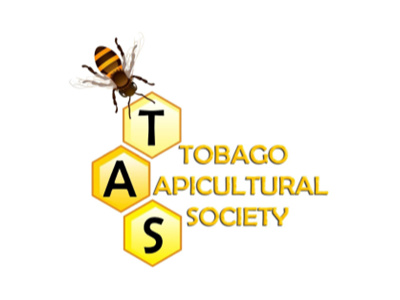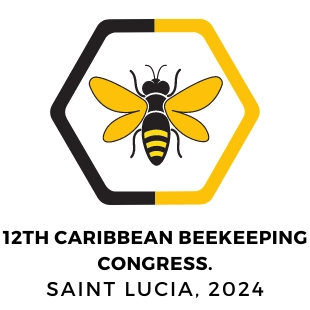Proposed Changes to Beekeeping Legislation to Permit Importation and Trans-shipment of Honey
The Tobago Apicultural Society urges the Government of the Republic of Trinidad and Tobago to resist pressure from our CARICOM neighbours to rush through changes to our legal framework which will have far reaching effects on our bees in their critical role as pollinators for both food crops and fauna of all types; our agricultural sector and resulting economic impact on both beekeepers, and farmers; and our island’s biodiversity overall.
The community of beekeepers in Tobago, as key stakeholders, through the TAS, hold the following position on the dangers of the proposed legislative changes:
TAS IN AGREEMENT WITH REGIONAL BODY
The Association of Caribbean Beekeeping Organizations (ACBO) has issued a position paper1 on the proposed legislation amendment, and the TAS is in full support of its rationale for the maintenance of the prohibitions under the current Act.
INTRODUCTION OF PESTS AND DISEASES TO TOBAGO’S ECOSYSTEM
Due to the ban on importation and trans-shipment of honey and bee products under the current legislation, Trinidad and Tobago has few serious pests and diseases which may cause colonies and the industry to be severely impacted, and/or pose risks to human health. For instance, American Foul Brood (AFB) cannot be treated except by antibiotics, and residues remain in honey. This has been thought to contribute to antibiotic resistance in humans. In addition, the spores remain active in honey, containers and beeswax for up to fifty (50) years, posing a long term risk to the bees and the beekeeping sector.
While some provisions exist in the current legislation, it does not deal specifically with AFB, and the Act’s enforceability is stymied by the lack of availability of the legally designated lab facility (Chemistry, Food and Drug Division – CFDD). Much more rigorous testing and greater volumes will be required under the proposed new regime.
FOOD SAFETY AND CONSUMER CONFIDENCE IN HONEY
Given the prevalence of “honey laundering” in the global market2, there is also a significant risk to consumers, who pay the premium for honey because they believe it to be a functional food, i.e. one that has benefits that go beyond its nutritional value. Indeed, many of our local consumers use honey as a medicine, using it for treatment of glaucoma, diabetes, allergies, coughs, and as a contact treatment for burns, wounds and skin infections, just to cite a few.
Significant amounts of illegal honey of unknown origin and composition are already widespread in both the global market3 and locally4. The TAS holds that the Government must show consumers and beekeepers that they are committed to enforcement of existing regulations, and maintaining testing protocols in support of our current legislation. For example, the Chemistry, Food and Drug Division is tasked with the testing of honey suspected of being adulterated, yet its lab is not functioning. This effectively eliminates the ability of the Inspector of Apiaries to verify whether honey is being adulterated, and has negatively impacted consumer confidence. No one can be charged in the courts, and the illegal trade continues.
As a result, the public and industry stakeholders lack confidence in the Government’s ability to maintain the enforcement and testing regime required to continuously monitor and verify the increased volume of product that the lifting of the prohibitions would permit.
These proposed legislative changes would also permit irradiation and/or pasteurisation of imported honey under the guise of safeguarding against potential pests and diseases. The TAS is clear that honey that has been treated with radiation or pasteurized is no longer honey, as it has lost all of its anti-microbial and beneficial properties.
The TAS notes that heating honey to this extent would also change the viscosity of the product, and allow unscrupulous beekeepers to harvest unripe nectar from the hive and preserve and thicken it through this pasteurisation process. The end consumer is thus defrauded into believing that this product is honey, when in truth, raw honey is much more than the mixture of composite sugars.
Treating a food product with radiation has been shown to be harmful to health in several animal studies, and may contribute to cancer and other immune diseases in humans – more research is required to prevent the citizens of Trinidad and Tobago from being used as case studies. New labelling regulations must clearly identify pasteurised or irradiated product.
ECONOMIC IMPACT ON BEEKEEPING AND AGRICULTURE
With the potential illness and/or death of millions of bees through the introduction of novel pests and diseases, there will be a significant negative impact on the pollination capability of honeybees, and possibly other bee species, as a result. Farmers’ yields will therefore be reduced as plant production of fruits will be affected. Without our pollinators, food production, our farmers’ livelihoods and our island’s food security are at risk, leading to significant negative economic impact as a result.
The opening of the market to potentially adulterated, pasteurised or irradiated product also destroys the reputation of honey as a healthy, wholesome and safe food. It gives an unfair trade advantage to unscrupulous traders and producers of these products, and puts a naturally ripened, artisanal product, as crafted by Tobago’s bees and harvested by our island’s beekeepers at a trade disadvantage, as our competition can produce more product in a shorter period of time.
The regulations as proposed do not provide for labs to provide beekeepers with export compliant testing for markets like the United States, Canada, UK or EU. If external markets are able to access TT markets, and increase competition for local producers, then in the interest of fair trade, we should also have access to testing to allow compliance with international food safety regulations such as the Codex Alimentarius.
In 2014, the Economic Development Board published a report5, stating that Government had identified honey as a strategic product for further export development. In fact, Tobago honey has won numerous international awards, including at the National Honey Show in the UK prior to the introduction of EU regulations. Due to the lack of testing facilities, and the cost to beekeepers to send samples abroad for testing, export to this potentially lucrative market has been inaccessible to our small-scale local producers.
The Tobago Apicultural Society seeks to engage our partners in agriculture, civil society, members of the scientific community, conservation and the wider public to join us in urging the Government against hasty and ill-considered action to relieve the trade pressure upon it from CARICOM, and instead to seek our national interest to ensure pollinator protection, adequate testing and enforcement systems to protect consumer health and confidence, and protect the livelihoods of our local beekeepers who practice husbandry of our craft at the highest level.
1 https://acboonline.com/association-of-caribbean-beekeepers-organisation-acbo-rejects-caricoms-honey-guidelines-to-facilitate-inter-regional-trade-in-the-caribbean/
2 https://www.insider.com/fake-honey-problems-how-it-works-2020-9
3 https://www.theguardian.com/food/2023/mar/26/uk-honey-fails-authenticity-test
4 https://www.guardian.co.tt/news/customs-seize-250000-in-illegal-honey-6.2.1677953.6b22b14e67
5 http://www.acboonline.com/wp-content/uploads/2016/06/EDC-The-development-of-the-honey-sector-in-Trinidad-and-Tobago.pdf


